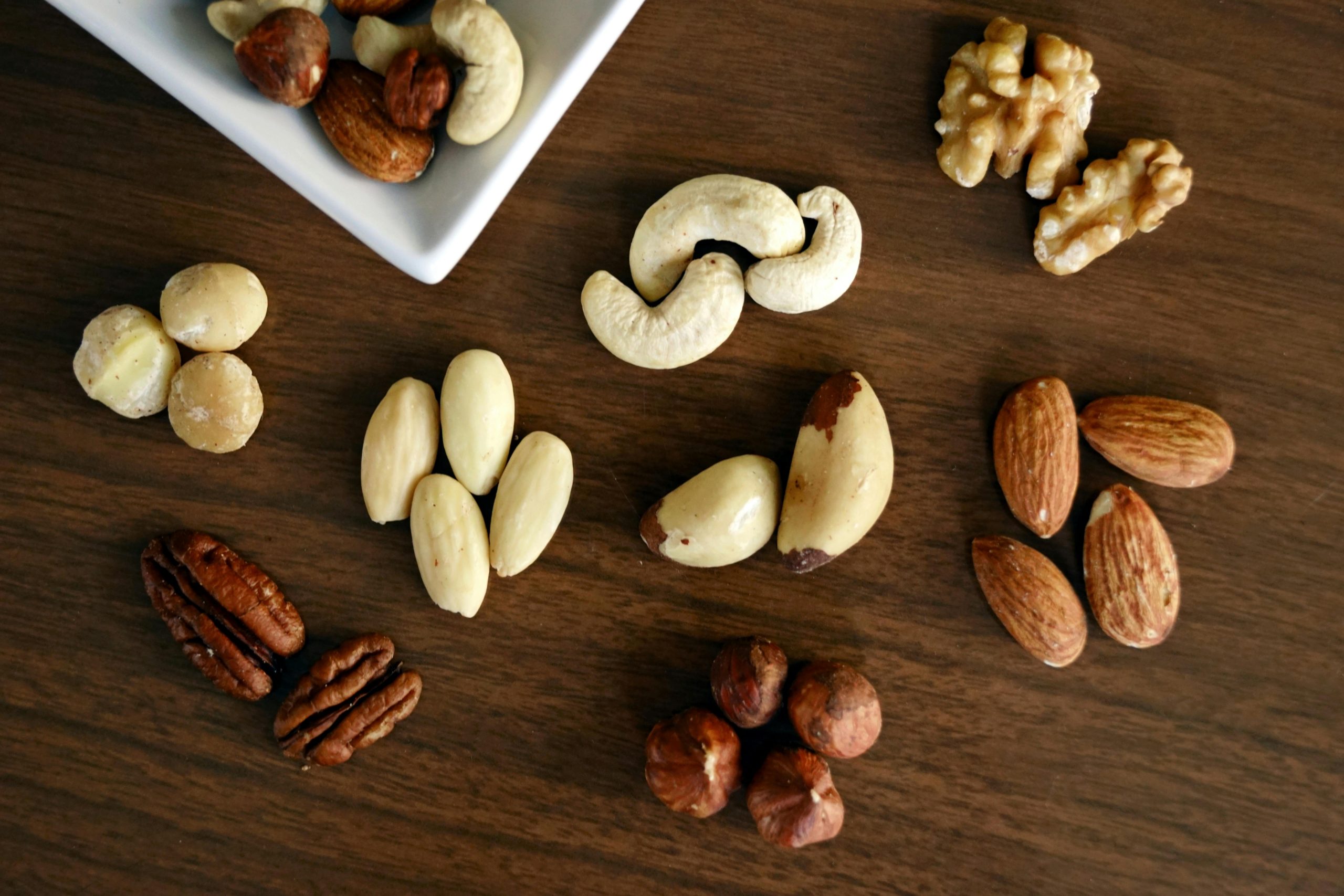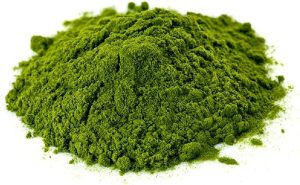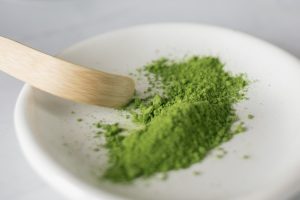
- Overview of Alpha-linolenic Acid
- Brief History of Alpha-linolenic Acid
- Functions of Alpha-linolenic Acid
- Recommended Daily Intake (RDI), Recommended Dietary Allowance (RDA), Adequate Intake (AI), or Reference Nutrient Intake (RNI) for Alpha-linolenic Acid
- Deficiency of Alpha-linolenic Acid
- Food Sources of Alpha-linolenic Acid and Where to Get It From
- Alpha-linolenic Acid and Its Interaction with Other Medications
- Websites and Articles to Delve into the Benefits of Alpha-linolenic Acid
- Disclaimer
Overview of Alpha-linolenic Acid
Alpha-linolenic acid (ALA) is an essential omega-3 fatty acid crucial for human health. As a plant-based polyunsaturated fat, ALA is predominantly found in certain seeds and oils, with flaxseeds, chia seeds, and walnuts being notable sources.
Once consumed, the body can convert ALA into longer-chain omega-3 fatty acids, such as eicosapentaenoic acid (EPA) and docosahexaenoic acid (DHA), both known for their cardiovascular and cognitive benefits. ALA plays a vital role in reducing inflammation, supporting heart health, and contributing to proper brain function.
Including ALA-rich foods in the diet, such as flaxseed oil or incorporating flaxseeds into meals, can be a valuable strategy to ensure an adequate intake of this essential fatty acid.
Brief History of Alpha-linolenic Acid
The history of alpha-linolenic acid (ALA) begins with its discovery as an essential fatty acid. In the early 20th century, researchers recognized the importance of certain fats in the diet for maintaining health. ALA, an omega-3 fatty acid, gained attention for its role as a precursor to other essential fatty acids, including eicosapentaenoic acid (EPA) and docosahexaenoic acid (DHA).
In the mid-20th century, scientific advancements led to a deeper understanding of the biochemical pathways involving ALA. Researchers identified its presence in various plant sources, such as flaxseeds, chia seeds, and walnuts.
Over time, studies focused on elucidating the health benefits associated with ALA, particularly its contributions to cardiovascular health and brain function. The recognition of omega-3 fatty acids, including ALA, as integral components of a balanced diet has influenced dietary recommendations and nutritional guidelines.
Today, ALA continues to be a key area of research in nutrition and human health, with ongoing studies exploring its diverse physiological roles and potential therapeutic applications.
| Period | Milestones |
|---|---|
| Early 20th Century | Recognition of essential fatty acids; initial understanding of their importance. |
| Mid-20th Century | Identification of ALA as an omega-3 fatty acid; discovery of its plant sources. |
| Ongoing Research | Exploration of ALA’s role as a precursor to EPA and DHA; focus on health benefits. |
| Contemporary Nutrition | Integration of ALA into dietary recommendations; ongoing studies on its effects. |
Functions of Alpha-linolenic Acid
Alpha-linolenic acid (ALA), an essential omega-3 fatty acid, plays several crucial roles in the body. Here are key functions of ALA:
- Precursor to EPA and DHA:
- ALA serves as a precursor for the synthesis of longer-chain omega-3 fatty acids, namely eicosapentaenoic acid (EPA) and docosahexaenoic acid (DHA). EPA and DHA are vital for various physiological processes, including brain development and function, as well as cardiovascular health.
- Cardiovascular Health:
- ALA has been associated with cardiovascular benefits, including reducing the risk of heart disease. It may contribute to lowering blood pressure, reducing inflammation, and improving lipid profiles by increasing levels of beneficial high-density lipoprotein (HDL) cholesterol.
- Anti-Inflammatory Properties:
- ALA has anti-inflammatory effects, helping to modulate the body’s inflammatory responses. Chronic inflammation is linked to various health conditions, and omega-3 fatty acids like ALA may play a role in mitigating inflammation.
- Brain Function:
- Omega-3 fatty acids, including ALA, are critical for proper brain function. ALA contributes to the structural integrity of cell membranes in the brain and may support cognitive health.
- Vision:
- DHA, derived from ALA, is an essential component of the retina in the eyes. Consuming sufficient ALA-rich foods contributes to maintaining eye health and supporting vision.
- Cell Membrane Structure:
- ALA is incorporated into cell membranes throughout the body, influencing membrane fluidity and function. This is particularly important for the flexibility and integrity of cell membranes.
- Immune System Support:
- Omega-3 fatty acids, including ALA, play a role in supporting the immune system. They can influence immune cell function and response to infections.
- Skin Health:
- ALA may contribute to maintaining healthy skin by influencing skin barrier function and hydration.
To ensure adequate intake of ALA, it is important to include sources such as flaxseeds, chia seeds, walnuts, and flaxseed oil in the diet. While ALA is essential, incorporating a variety of omega-3-rich foods can provide a more comprehensive range of these beneficial fatty acids.
Recommended Daily Intake (RDI), Recommended Dietary Allowance (RDA), Adequate Intake (AI), or Reference Nutrient Intake (RNI) for Alpha-linolenic Acid
Recommended Dietary Allowance (RDA) or Adequate Intake (AI) values for alpha-linolenic acid (ALA) were not universally established by major health organizations like the Food and Nutrition Board of the National Academies or the World Health Organization. Nutrient recommendations can vary by region and may be subject to updates.
However, general dietary guidelines often suggest a daily intake of omega-3 fatty acids, including ALA. For instance, the American Heart Association recommends consuming at least two servings of fatty fish per week, which provides EPA and DHA, while also acknowledging the potential benefits of ALA-rich foods.
It’s essential to note that individual dietary needs can vary based on factors such as age, sex, health status, and specific health goals. For the most accurate and up-to-date information on recommended intakes of ALA, it is advisable to consult the latest dietary guidelines provided by authoritative health organizations or seek advice from a registered dietitian or healthcare professional.
Deficiency of Alpha-linolenic Acid
A deficiency of alpha-linolenic acid (ALA), an essential omega-3 fatty acid, can lead to various health issues. Since ALA is crucial for several physiological functions, a lack of this fatty acid may negatively impact the body. Common consequences of ALA deficiency include:
- Cardiovascular Issues:
- Omega-3 fatty acids, including ALA, play a role in maintaining cardiovascular health. A deficiency may contribute to an increased risk of cardiovascular diseases, as omega-3s help regulate blood pressure, reduce inflammation, and improve lipid profiles.
- Impaired Brain Function:
- Omega-3 fatty acids are integral to proper brain structure and function. A deficiency in ALA may affect cognitive function and increase the risk of neurodegenerative disorders.
- Inflammatory Conditions:
- ALA has anti-inflammatory properties, and its deficiency might contribute to an imbalance in the body’s inflammatory responses. Chronic inflammation is linked to various health conditions, including autoimmune disorders.
- Vision Problems:
- Adequate levels of omega-3 fatty acids, including DHA derived from ALA, are essential for maintaining eye health and supporting vision. A deficiency could potentially contribute to vision problems.
- Skin Issues:
- ALA is involved in maintaining healthy skin, and a deficiency may contribute to skin problems, such as dryness and irritation.
- Immune System Dysfunction:
- Omega-3 fatty acids, including ALA, play a role in supporting the immune system. A deficiency may impair immune function, making the body more susceptible to infections and illnesses.
- Cell Membrane Disturbances:
- ALA is incorporated into cell membranes, influencing membrane structure and function. A deficiency could potentially affect cell membrane integrity and flexibility.
To prevent ALA deficiency, it’s important to include dietary sources rich in omega-3 fatty acids, such as flaxseeds, chia seeds, walnuts, and flaxseed oil, in the regular diet. However, it’s advisable to maintain a balanced and varied diet, as excessive intake of certain nutrients can also have adverse effects. If someone suspects a nutritional deficiency, they should consult with a healthcare professional or a registered dietitian for personalized advice and guidance.
Food Sources of Alpha-linolenic Acid and Where to Get It From
Alpha-linolenic acid (ALA) is primarily found in various plant-based sources. Including these foods in your diet can help ensure an adequate intake of this essential omega-3 fatty acid. Here are some common food sources of ALA:
- Flaxseeds and Flaxseed Oil:
- Whole flaxseeds or ground flaxseed meal.
- Flaxseed oil.
- Chia Seeds:
- Chia seeds, which can be added to cereals, yogurt, smoothies, or used as a thickening agent in recipes.
- Walnuts:
- Whole walnuts or chopped walnuts, which can be added to salads, oatmeal, or consumed as a snack.
- Hemp Seeds:
- Hemp seeds, which can be sprinkled on salads, yogurt, or incorporated into smoothies.
- Canola Oil:
- Canola oil, used in cooking and salad dressings.
- Soybeans and Soybean Oil:
- Whole soybeans, tofu, or soybean oil.
- Perilla Oil:
- Perilla oil, commonly used in Asian cuisines.
- Brussels Sprouts:
- Brussels sprouts, a cruciferous vegetable.
- Mustard Oil:
- Mustard oil, used in certain culinary traditions.
- Algal Oil Supplements:
- Algal oil, derived from algae, is available in supplement form and provides both DHA and EPA, which are converted from ALA.
It’s important to note that while ALA is a valuable omega-3 fatty acid, other longer-chain omega-3s like eicosapentaenoic acid (EPA) and docosahexaenoic acid (DHA) are also beneficial for health. These longer-chain omega-3s are more commonly found in fatty fish such as salmon, mackerel, and sardines. If you follow a vegetarian or vegan diet or have dietary restrictions, you may consider algal oil supplements to obtain DHA and EPA directly.
Incorporating a variety of these ALA-rich foods into your diet can contribute to overall omega-3 intake and support various aspects of health, including cardiovascular and brain health.
Alpha-linolenic Acid and Its Interaction with Other Medications
Alpha-linolenic acid (ALA), being a natural component of certain foods, generally does not interact significantly with medications in the same way that some pharmaceuticals might. However, there are a few considerations to keep in mind:
- Anticoagulant Medications (Blood Thinners):
- ALA has mild anticoagulant properties, meaning it may have a slight blood-thinning effect. If you are taking medications such as warfarin (Coumadin) or other anticoagulants, it’s important to be cautious about excessive intake of ALA-rich foods or supplements. Large amounts of omega-3 fatty acids can potentially enhance the anticoagulant effects, leading to an increased risk of bleeding. Consult with your healthcare provider for personalized advice.
- Antiplatelet Medications:
- Similar to anticoagulants, medications like aspirin that have antiplatelet effects might interact with ALA, potentially increasing the risk of bleeding. Again, individuals on such medications should discuss their diet, including ALA-rich foods or supplements, with their healthcare provider.
- Medications Metabolized by Cytochrome P450 Enzymes:
- Some medications are metabolized in the liver by the cytochrome P450 enzyme system. While ALA is not known to significantly influence these enzymes, it’s always a good idea to inform your healthcare provider about any dietary supplements or significant dietary changes to ensure there are no potential interactions.
It’s crucial to note that interactions can vary based on the specific medication, dosage, and individual health conditions. Always consult with your healthcare provider before making significant changes to your diet or introducing new supplements, especially if you are on prescription medications. They can provide personalized advice based on your specific health situation.
Incorporating ALA-rich foods into a balanced diet is generally considered safe for most individuals. However, for those with specific medical conditions or taking certain medications, individualized guidance is important to ensure safety and efficacy.
Websites and Articles to Delve into the Benefits of Alpha-linolenic Acid
Disclaimer
The information is solely provided for educational purposes. It is not intended to diagnose, treat, cure, or prevent any disease. Seek the advice of your physician or qualified healthcare provider with any questions you may have regarding a medical condition at all times. Never disregard professional medical advice because of something you have read or learned from this article.






